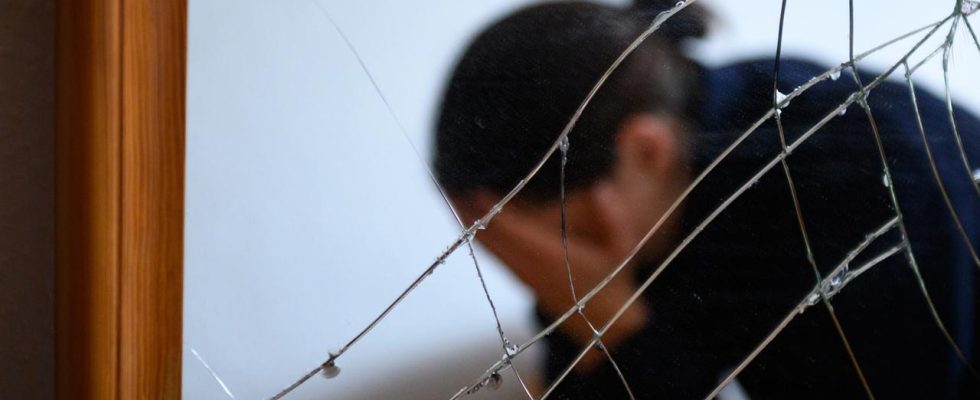The number of recorded victims of domestic violence has recently increased again in Germany. Most of them are female. Particularly affected and often overlooked: women with disabilities.
133 bright orange pairs of shoes are in the district office in Würzburg, one pair for every woman killed by intimate partner violence in 2022. Carmen Wallrapp, equal opportunities officer for the Würzburg district, says: “133 pairs of shoes – because women chose or had to choose the wrong partners. 133 women killed, that has to change.”
There are orange wheelchairs next to the shoes; the equal opportunities officer is drawing particular attention to violence against women with disabilities on the day of action on November 25th. According to Wallrapp, these hardly come up in public discussion when it comes to the topic. One of them is 34-year-old Emel (name changed) from the Würzburg district. She was humiliated and beaten by her husband for more than five years, including during her pregnancy.
Emel has a mental disability. It was only with the help of her carer that she managed to find out about her rights. She ultimately files for divorce. Today the 34-year-old says: “It was difficult to defend myself because I didn’t know a lot of things, such as what rights I had. My husband invented laws that didn’t exist. If I had known more earlier, I would have defended myself “But my husband took advantage of that and made me dependent.”
Carmen Wallrapp, equal opportunities officer for the Würzburg district, organized one of the Germany-wide events to mark the International Day against Violence against Women.
Every second woman with a disability experiences sexual violence
Over 240,500 victims of domestic violence were recorded in Germany in 2022 – 8.5 percent more than in 2021. Last year, over 70 percent of victims of domestic violence were female, while 76 percent of the suspects were male, according to the Federal Ministry of the Interior’s situation report published in July. The police do not record how many of the victims have disabilities.
However, studies show that women with disabilities are at greater risk of becoming victims of discrimination and violence. According to Martina Puschke, head of the political advocacy group for disabled women in Weibernetz eV, this risk is two to three times higher. The educator and lobbyist for disabled women says that every second woman with a disability experiences sexualized violence.
The reasons for this are complex, says Puschke. “On the one hand, perpetrators exploit their power when women with disabilities need help, be it in driving services, on the way to work, in residential facilities, in care situations or during medical examinations. They take advantage of the personnel dependency in a situation. Many also leave “I assume that the woman won’t say anything or won’t be believed if she says something.”
Woman with disabilities: special form of discrimination
Science calls the phenomenon when forms of discrimination work together intersectionality. According to Katharina Walgenbach, Professor of Education and Difference, from an intersectional perspective the point is that gender and disability, when they occur simultaneously, produce specific forms of discrimination.
Puschke therefore calls for girls and women with disabilities to be empowered, regardless of where they live, and to be informed about violence and their rights to defend themselves through barrier-free educational materials. In addition, women’s advice centers must be financially equipped so that they can specifically support women with various disabilities, and women’s shelters must be barrier-free.
Hardly barrier-free Women’s shelter places
There are 6,800 women’s shelter places in Germany. If you are currently looking for a place in the nationwide women’s shelter search, you will find 29 free places throughout Germany. It is even more difficult for women with disabilities: There are 80 women’s shelter places nationwide for women with walking difficulties, ten of which are currently vacant. There are twelve places for women with visual impairments, two of which are free.
With the help of her carer, Emel made it through without the support of a women’s shelter. But she knows that she too could have belonged to one of the orange pairs of shoes. Especially because of her disability. She advises other affected people: “Be brave, inform yourself about your rights, educate yourself! Women can free themselves from violent situations.”

